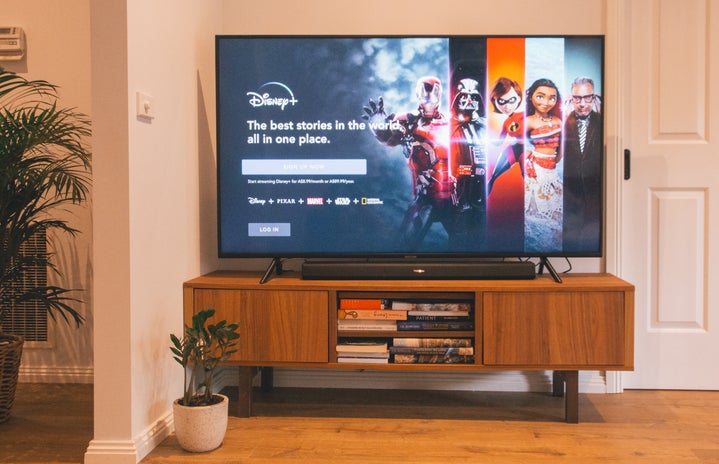Mild spoilers ahead for the Percy Jackson and the Olympians book series, including all its adaptations as of March 2024.
I was eight years old when I first read The Lightning Thief by Rick Riordan, and more than a decade later, I still find myself captivated by this world of Greek gods and monsters. The story centers around Percy Jackson, who discovers that he is a demigod and his father is Poseidon, the god of the sea. Accused by Zeus, the god of the sky, of stealing his lightning bolt, Percy embarks on a quest to recover it, clear his name, and prevent a war among the Olympian gods. I was drawn to this story because of its relatable characters, clever integration of classic mythology into our modern world, and balance of humour and sincerity. The way this book explores themes such as identity, family, and sacrifice is also commendable.
The Percy Jackson and the Olympians series, along with its sequel series, Heroes of Olympus, played a formative role in my childhood, and I have eagerly awaited a faithful live-action adaptation depicting some of my favourite characters and stories. While I did watch both movies – I even caught Sea of Monsters in theaters twice back in 2013 – they fell short in terms of characterization and plot accuracy. The closest adaptation I encountered was The Lightning Thief musical on tour in Seattle, which eventually made its way to a limited run on Broadway. Therefore, I was ecstatic when Disney+ announced its plans to create a show with Rick Riordan’s input, aiming to cast younger actors and remain faithful to the books.
The final episode of season one recently premiered on January 30th, so in this article, I will discuss what I enjoyed about the show, what I felt was missing, and what I look forward to seeing in the second season.
What I Enjoyed:
Casting and Performances:
One of the highlights for me was the casting of the main trio—Percy, Annabeth, and Grover. The actors delivered great performances for what they had to work with, and their strong chemistry exhibited in the press tour interviews that I watched hints at the potential for more fun interactions in season two. Additionally, I liked the casting choices specifically for Clarisse, Luke, Ares, Dionysus, Sally, Poseidon, and Zeus, who all embody their characters from the source material very well.
Inclusion of Scenes from the Book:
The inclusion of more story beats from the book compared to the 2010 movie adaptation was another positive aspect. Scenes such as the Chimera encounter on the St. Louis Arch and Percy’s fight against Ares were well-executed, capturing the essence of the source material. The season one finale, in particular, stood out as quite faithful to the book, and I hope that the quality of that episode carries forward to season two.
Deeper Exploration of Themes:
I appreciated how the show delved deeper into the themes of identity, family, and sacrifice compared to the book. Furthermore, the greater emphasis on the concept of kleos (glory) helps to better understand certain character motives, overall enriching the narrative.
What Was Missing:
Lack of Tension and Fun:
The inconsistent pace, heavy reliance on dialogue-driven exposition, and mostly anticlimactic fight scenes resulted in a less engaging experience, lacking the sense of urgency in the book. The trio’s quick discernment of mythological traps further diminishes the suspense and fun that characterized the original material. For example, I was always impressed by the creative modernization of classic Greek monsters in the books and how our main characters had cleverly problem-solved their way out of the monsters’ traps. However, I was disappointed when I saw the characters never fall for them in the show. Specifically, I was let down by the elimination of fun and tension during the Lotus Casino and Crusty’s waterbed store scenes in Episodes 6 and 7, respectively.
Less Immersive World-Building:
Opting for a more serious and grounded tone, in addition to the mostly bland cinematography, hindered the show’s ability to fully immerse me into this world of Greek gods and monsters. The predominant use of the volume stage affected the authenticity of some real-life settings (e.g., the Montauk beach), and the limited use of creative camera choices was noticeable. While most of the practically built sets were well-designed, like Camp Half-Blood, more fantastical locations that relied on the volume stage, such as Olympus and the Underworld, lacked dynamism and immersivity.
Absence of B-Plots:
Something that I believe contributed to the inconsistent pacing was the absence of substantial B-plots, leading to Percy, Annabeth, and Grover often splitting up or resorting to awkward scene transitions. Introducing a B-plot during the quest-heavy episodes, perhaps centered around tensions escalating at Camp Half-Blood amid the gods’ impending war, could have enhanced pacing and provided a broader perspective beyond the main trio’s story.
What I Look Forward to in Season Two:
In anticipation of the now-confirmed second season, I hope to see more humour, leveraging the enjoyable dynamics of the younger cast, especially since this was such an iconic characteristic of the books. Introducing more engaging B-plots throughout the episodes, for example, flashbacks depicting Annabeth, Luke, and Thalia’s time on the run before arriving at Camp Half-Blood, could also add more depth and context to the narrative and improve the pacing. However, despite my disappointments, I maintain optimism for an improved season two and am grateful for the opportunity to watch a decent live-action adaptation of this beloved book series.

